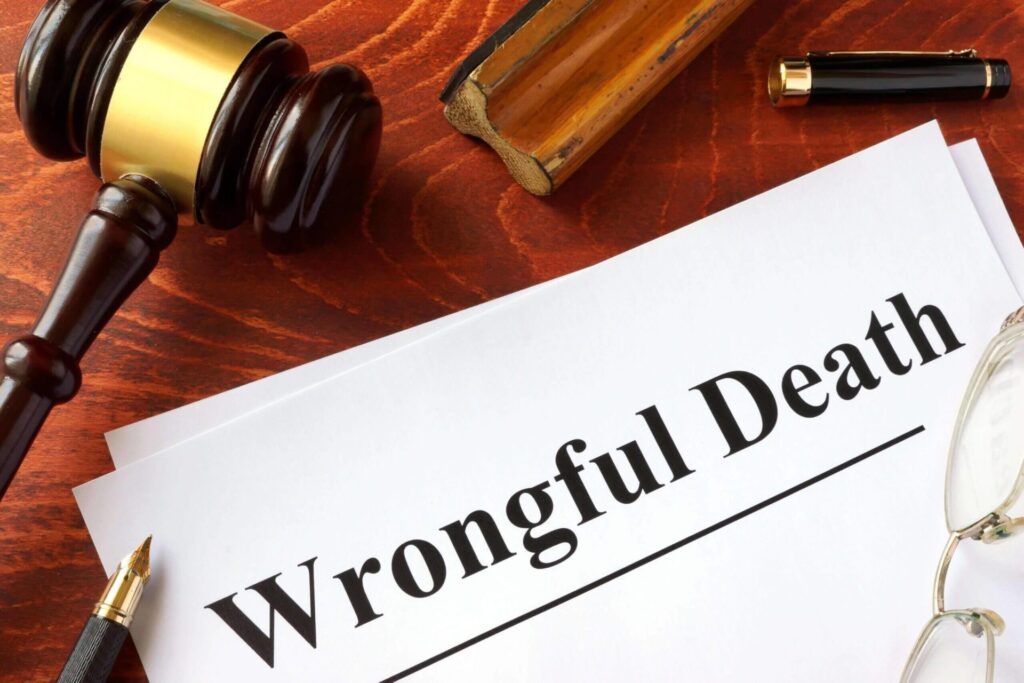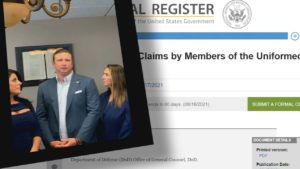Military service members and their families rely on military healthcare providers for essential medical treatment. However, when a healthcare provider’s negligence leads to the death of a service member, the surviving family members may be able to file a wrongful death claim. This type of claim seeks compensation for the loss of a loved one due to medical malpractice within the military healthcare system. Understanding the nuances of these claims can help families pursue justice and navigate the often complex legal landscape.
What is a Wrongful Death Claim in Military Medical Malpractice?
Wrongful death claims arise when someone dies as a result of another party’s negligence or intentional wrongdoing. In the context of military medical malpractice, this can occur when a healthcare provider within the military or Veterans Affairs (VA) fails to provide the standard of care required, resulting in a fatal outcome. These claims allow the family members of the deceased to seek compensation for the emotional and financial losses they suffer due to the wrongful death.
Common Causes of Wrongful Death in Military Medical Malpractice
Wrongful death claims can stem from a variety of medical mistakes or neglectful actions, including:
- Misdiagnosis or Delayed Diagnosis: If a service member’s condition is misdiagnosed or diagnosed too late, they may not receive the appropriate treatment in time to prevent their death.
- Surgical Errors: Mistakes made during surgery, such as leaving surgical instruments inside the body or operating on the wrong body part, can result in fatal consequences.
- Medication Errors: Prescribing the wrong medication or dosage can cause severe, life-threatening reactions, particularly if a service member is already in a weakened state.
- Inadequate Treatment: Failing to provide proper treatment for injuries or illnesses can lead to a worsening of the condition and, ultimately, death.
- Neglect in Post-Operative Care: Lack of proper monitoring or care after a surgical procedure can lead to complications that may be fatal.
Who Can File a Wrongful Death Claim in Military Medical Malpractice?
The right to file a wrongful death claim generally falls to the surviving family members of the deceased. In most cases, this includes the spouse, children, or parents of the deceased service member. Each state may have specific laws governing who can file a claim and the amount of compensation they are eligible to receive.
It’s essential to consult with an experienced attorney to understand your rights and ensure that your claim is filed correctly. Wrongful death claims in the military medical context can be particularly complex, as they may involve specific rules and limitations.
The Role of the Federal Tort Claims Act (FTCA) and the Feres Doctrine
In general, the Federal Tort Claims Act (FTCA) allows individuals to seek compensation from the federal government when a government employee’s negligence results in injury or death. However, military medical malpractice cases are unique due to the Feres Doctrine, which prohibits active-duty service members from suing the federal government for injuries resulting from their service. This doctrine can complicate wrongful death claims, particularly if the deceased was an active-duty member at the time of the incident.
In recent years, changes to the FTCA have allowed for certain claims involving active-duty military personnel to be brought forth, but it remains a challenging process that requires specific legal knowledge and expertise.
What Damages Are Available in Wrongful Death Claims?
In a wrongful death claim, the compensation awarded is meant to provide financial relief to the surviving family members and to account for the loss they have experienced. Common damages that may be awarded in military medical malpractice cases include:
- Economic Damages: These damages cover measurable financial losses, such as medical bills, funeral expenses, and lost income that the deceased would have contributed to the family.
- Non-Economic Damages: Non-economic damages are designed to compensate for intangible losses, such as loss of companionship, emotional distress, and the pain and suffering experienced by the family due to the loss of their loved one.
- Punitive Damages: In some cases, punitive damages may be awarded to punish particularly egregious negligence. However, punitive damages are rare in wrongful death claims involving government entities.
Statute of Limitations for Military Medical Malpractice Claims
Each state has its statute of limitations, which dictates the time frame within which a wrongful death claim must be filed. For military medical malpractice claims under the FTCA, this period is typically two years from the date of the incident. However, it’s crucial to speak with an attorney as soon as possible to avoid missing any filing deadlines, as these time limits can vary based on specific circumstances and jurisdictional requirements.
The Importance of Legal Representation in Wrongful Death Claims
Navigating a wrongful death claim in military medical malpractice cases can be incredibly challenging due to the unique legal frameworks involved. The assistance of an experienced attorney can make a significant difference in understanding the intricacies of military law, gathering the necessary evidence, and building a compelling case.
An attorney can help with the following aspects:
- Case Evaluation: An experienced lawyer will review the details of the case to determine if you have a valid claim and what damages may be recoverable.
- Gathering Evidence: Collecting medical records, witness testimonies, and expert opinions is essential to establish negligence and causation.
- Negotiation and Settlement: Many wrongful death cases are settled out of court. A skilled attorney can negotiate on your behalf to ensure you receive a fair settlement.
- Litigation: If a settlement cannot be reached, your attorney will represent you in court and present your case effectively.
Conclusion:
If you have lost a loved one due to medical malpractice within the military or VA healthcare system, you do not have to face this journey alone. Seeking justice through a wrongful death claim can help provide the closure and financial support you need to move forward.
Contact us at Khawam Ripka LLP today for a consultation. Our experienced legal team is here to guide you through every step of the process, ensuring that your rights are protected and that you receive the compensation you deserve.

 Call Now- Open 24/7
Call Now- Open 24/7





